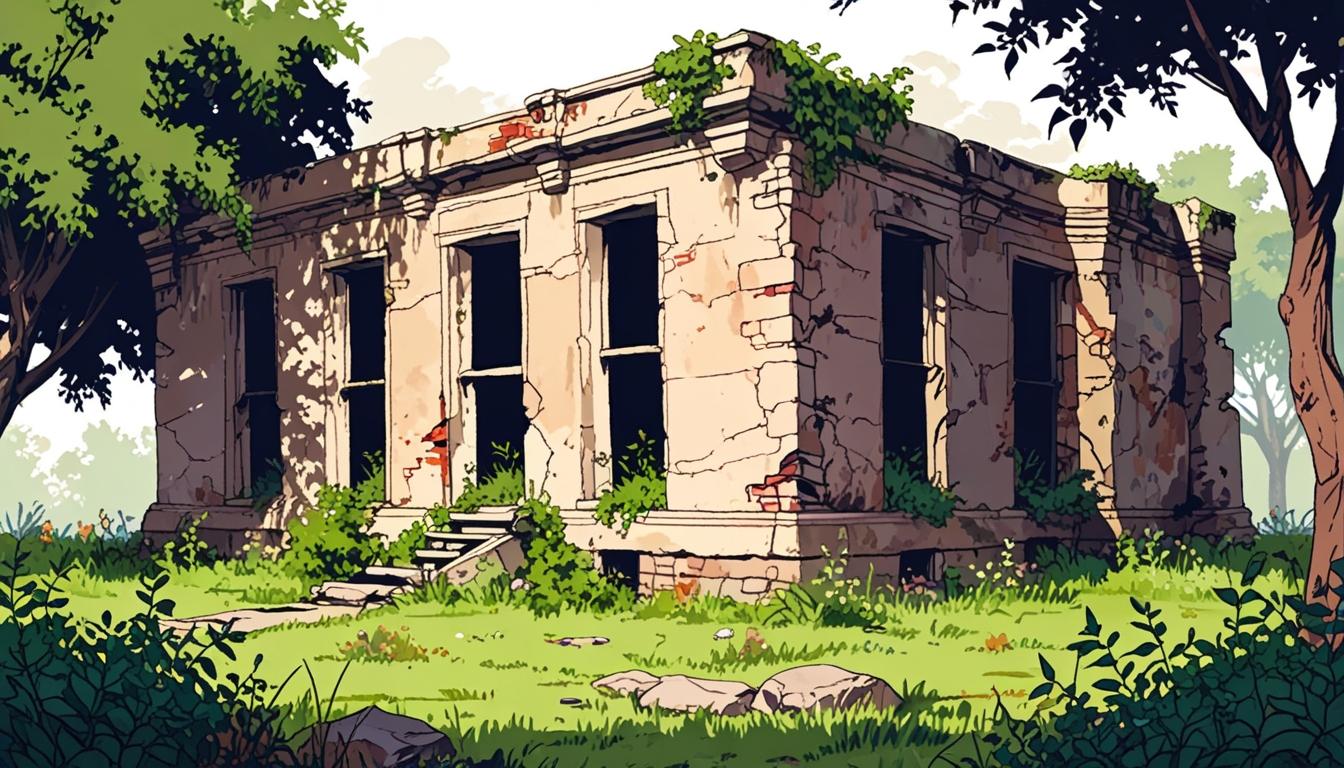In Port Glasgow, a once-thriving housing estate known as Clune Park is set to undergo significant demolition as authorities respond to increasing safety concerns. The estate, often referred to as ‘Scotland’s Chernobyl’ due to its desolate state and historical comparisons to the abandoned town of Pripyat, has experienced a dramatic decline over the years. Once home to hundreds of families, only a few tenants remain in what is now considered an unsafe environment, with approximately one-third of the buildings at risk of collapse.
Demolition crews are poised to begin tearing down 138 properties across 15 blocks within days. Among these structures is a B-listed school, initially planned to have its facade preserved for use in a proposed new energy centre. However, due to repeated arson incidents that left the building too dangerous to repair, it will now be demolished. The deteriorating conditions of Clune Park, consisting of overgrown vegetation, rubble, and debris, starkly contrast its former life, characterised by families who once inhabited the estate built for shipyard workers from the Victorian era to the aftermath of World War One.
Though the gradual exodus from Clune Park was not a direct result of a catastrophic event, its decline has been closely tied to the downturn of the local shipbuilding industry. The area has also developed a less favourable reputation, suffering from issues related to drug abuse and petty crime, which further accelerated the fall in property values. Former residents attribute the deteriorating condition of the estate to a lack of maintenance and investment, leading to a landscape marked by abandonment.
One of the last remaining residents, Marshal Craig, has expressed his determination to stay, despite the challenges posed by the surrounding dereliction. As fires set by arsonists have plagued neighbouring abandoned buildings, some enduring tenants face ongoing safety threats in their vicinity.
Inverclyde Council has been actively purchasing properties within the estate, with plans to demolish buildings deemed unsafe as a step towards potential regeneration of the area. Councillor Stephen McCabe, leader of Inverclyde Council, emphasised the necessity of these demolitions by stating that the actions taken are based on professional safety assessments following thorough investigations. He reiterated the council's duty to ensure public safety in Inverclyde, positioning the demolition of Clune Park as a protective measure against the risk posed by dangerous structures.
As the estate prepares for its imminent transformation, the stark juxtaposition of its rich historical significance and its current state of disrepair becomes ever more evident. Clune Park’s future remains uncertain, as questions linger about potential redevelopment and the legacy left by the past.
Source: Noah Wire Services
